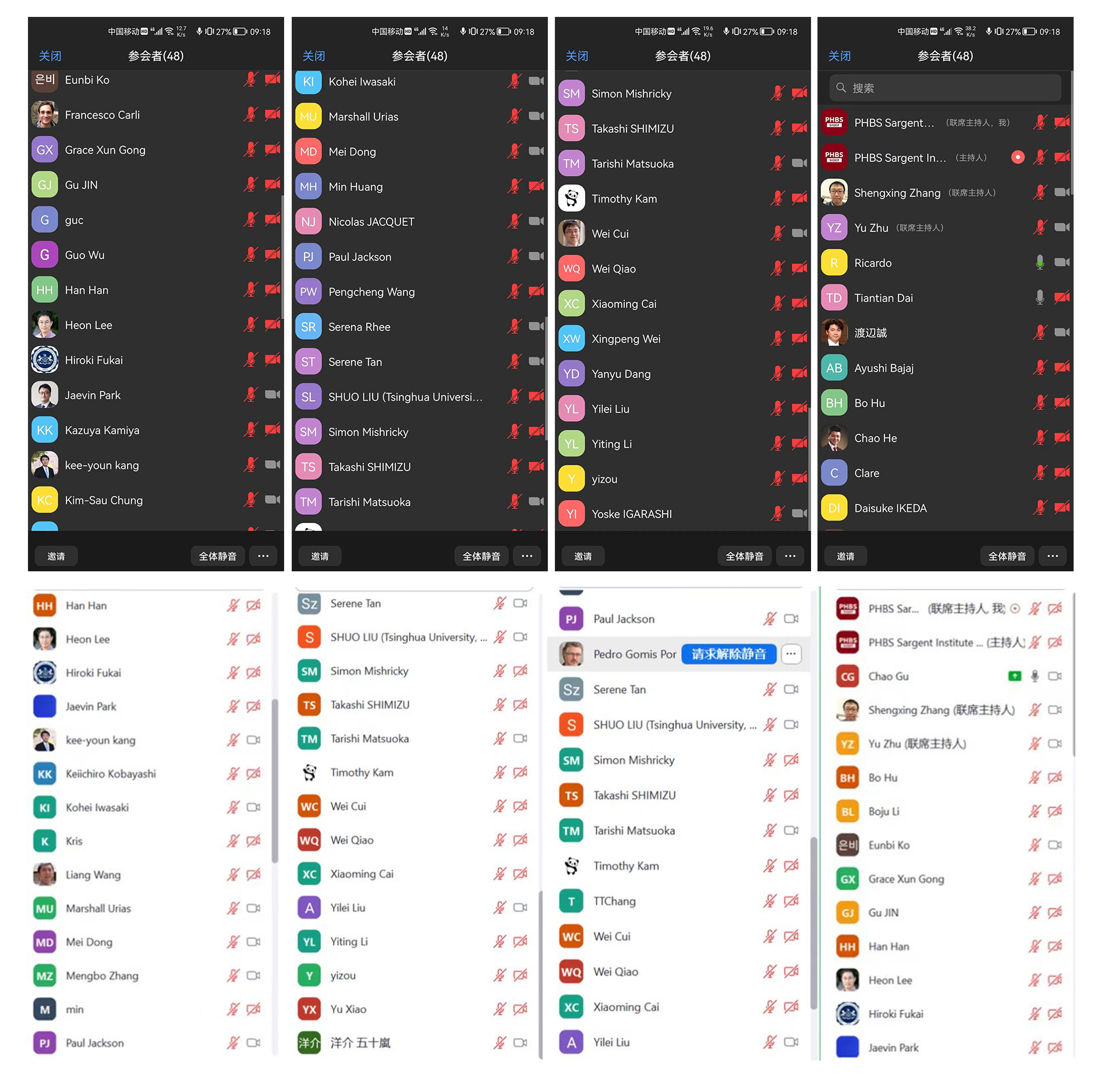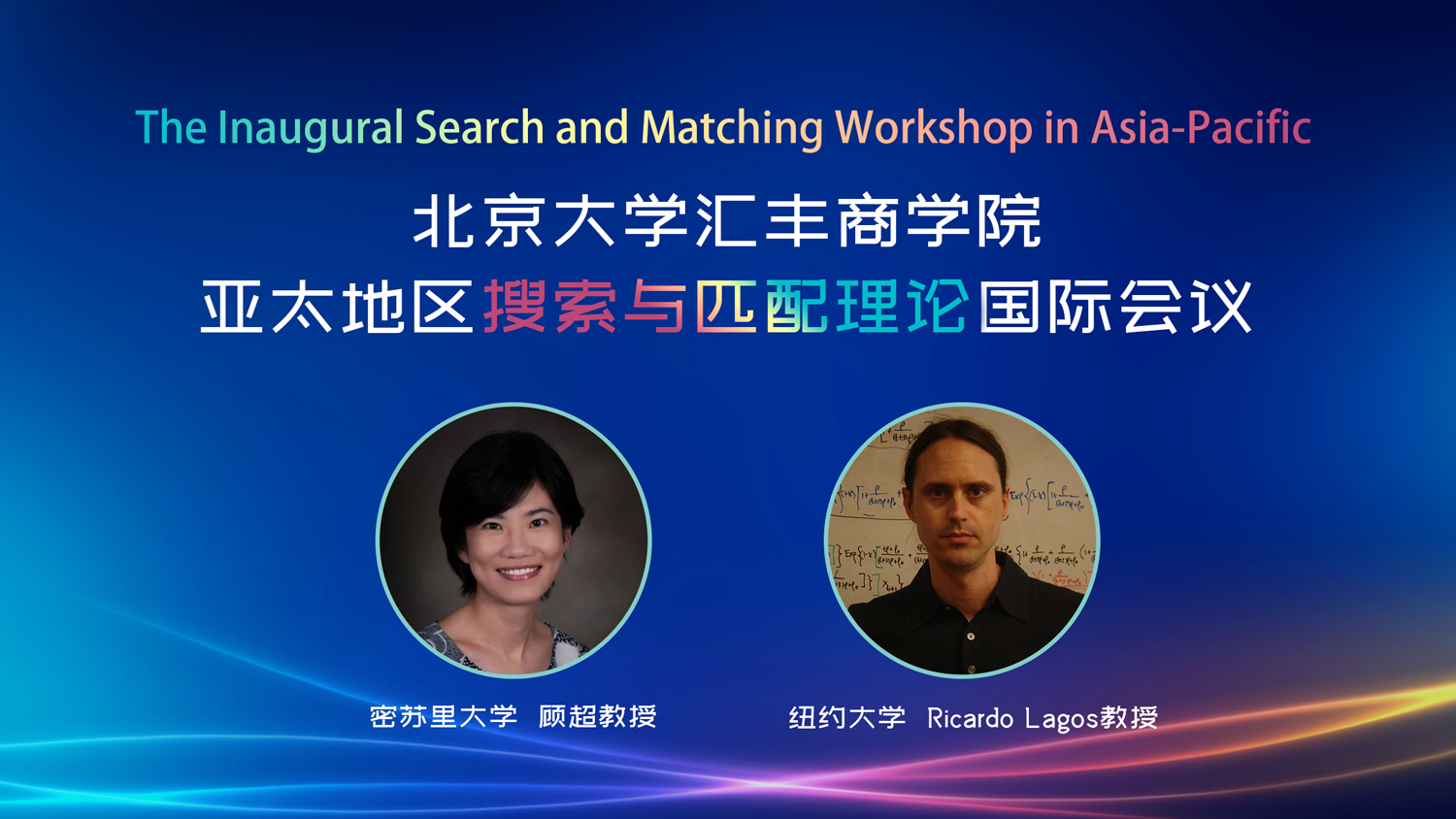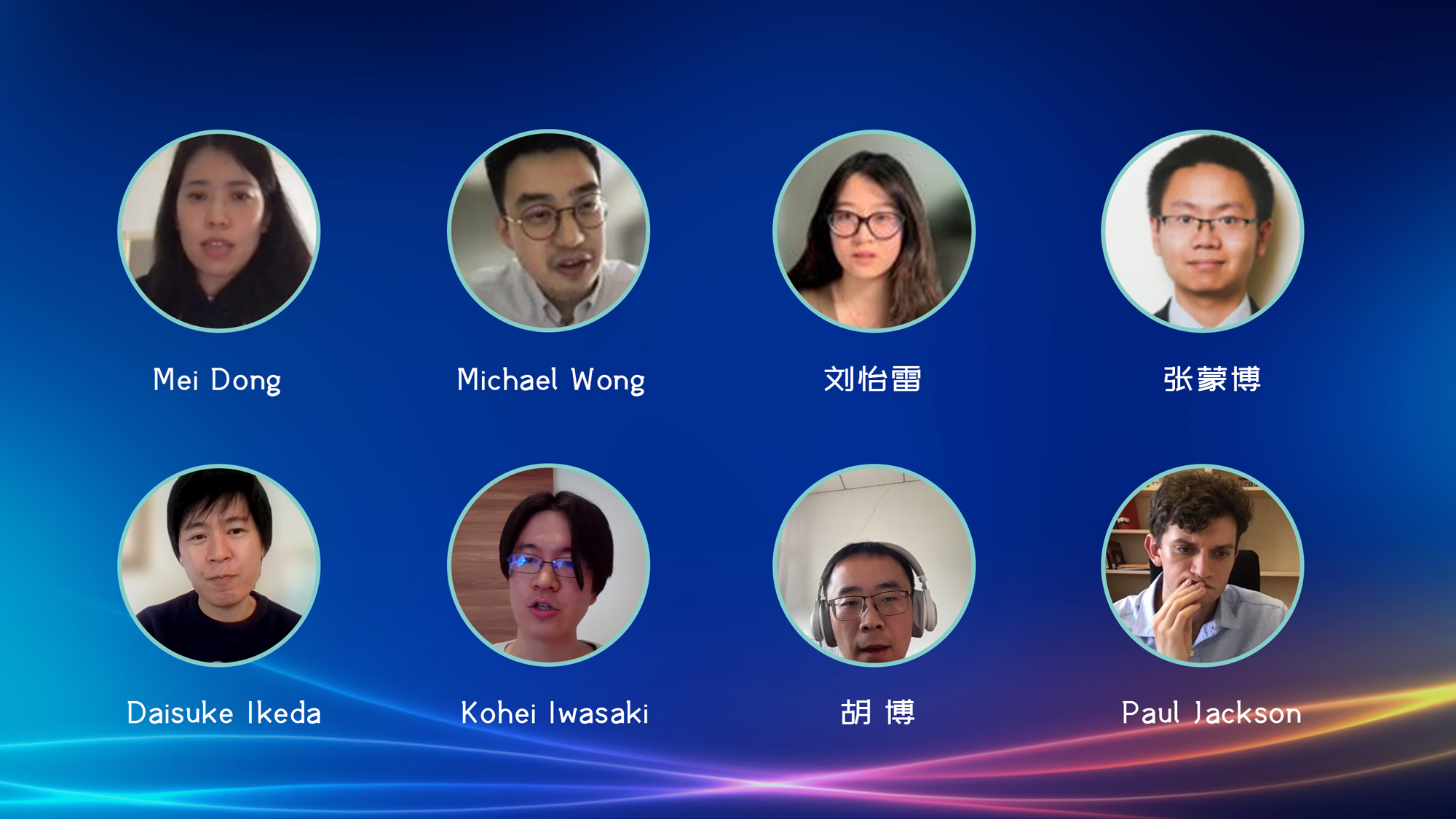The Inaugural Search and Matching Workshop in Asia-Pacific was held at PHBS on November 14 and 15, 2022. Hosted by the Sargent Institute of Quantitative Economics and Finance at PHBS, the workshop attracted more than 50 scholars from both Chinese universities such as Tsinghua University and Fudan University, and foreign institutes such as University of Missouri, New York University, National University of Singapore, University of Queensland, Kyoto University, and the Bank of Japan.

Scholars attend the workshop online
The first keynote speaker is Professor Chao Gu from the University of Missouri. She presented the paper "Credit Condition, Inflation and Unemployment," which studies the impact of firms' financing conditions on the labor market and the Phillips curve. Professor Gu argued that the flattening of the Phillips curve in the past few decades is due to the improvement of firms' financing conditions. This paper builds a general equilibrium model with financing constraints and search frictions to study the impact of financing conditions and monetary policy. When firms’ financing conditions improve, real wages rise, unemployment falls, and the Phillips curve flattens. In addition, the impact of firms’ financing conditions on unemployment and the effect of inflation on unemployment are of the similar magnitude.

Plenary Speakers
The second keynote speaker is Professor Ricardo Lagos from New York University. He presented the paper "Onetary Economics: How It Started, How It's Going," which investigated whether the role of money plays a vital role as the medium of exchange in monetary economics. Previous research found that monetary equilibrium is continuous with respect to a certain “cashless limit” and money plays a small quantitative role in high-velocity calibrations. However, existing research ignores the possibility that the rate of return on money affects the cost of transactions that don’t involve money. Professor Lagos argues that an economy with monetary frictions but sufficiently high velocity cannot be approximated by a “cashless economy” without monetary frictions. Monetary equilibrium is not continuous with respect to the cashless limit if there is market power in credit, payment, and settlement intermediation.

Presenters of four sessions
This year’s workshop also featured four sessions, including empirical evidence, intermediation, digital currency, and labor.
In the empirical evidence session, Professor Mei Dong from University of Melbourne presented the paper "Price Cycles and Prices: Theory and Evidence." By using the Nikkei point-of-sale scanner data from March 1988 to December 2017, the paper documents the following stylized facts: the product cycle is about 9 quarters, the proportion of new products entering the market fluctuates more than the proportion of exiting product, the price of new products fluctuates more than the average price, and the proportion of products entering the market is positively correlated with the price. The results suggest that endogenous product entry and price discounting can increase the standard deviation of inflation. The author then uses the model to explain the Japanese deflation puzzle since the 1990s. Dr. Michael Wong from the University of Hong Kong presented the paper "What is Money? Evidence from Introducing Redeemable Currency to a Barter Community." Using data from natural experiments in a barter community in Toronto, Wong explored the effect of large monetary expansion and sudden reduction in token redemption. The result shows that monetary expansion dramatically raised token-mediated transactions, but did not change barter volume, illustrating money’s role as a medium of exchange. In addition, this paper finds that fewer redemption opportunities could reduce both token and barter transactions, which means that redemption encourages money acceptance. Those findings are consistent with a search-theoretic model of money where redemption eliminates non-monetary equilibrium.
In the intermediation session, Dr. Yilei Liu from Southwestern University of Finance and Economics presented the paper “Optimal Banking Regulation and Monetary Policy.” This paper uses a tractable model with endogenous liquidity provision by banks to explore optimal banking regulation, where banks provide deposits as a means of payment and invest projects with costly monitoring. The results show that banking regulations are necessary to improve liquidity provision and commercial banks’ (CB) profits. In addition, high IOER improves liquidity if CB receives fiscal resources. Under high inflation and scarce private asset, IOER improves both welfare and CB profit. Dr. Mengbo Zhang from Shanghai University of Finance and Economics talked about the paper "Disintermediating the Federal Funds Market." The paper tries to explain the sharp decline in the scale of fed fund market after the Global Financial Crisis (GFC) in 2007-2008 by exploring the disintermediation channel. Professor Zhang built a search-and-match model for Fed fund markets with endogenous searching activity and tested the model predictions using bank-level data. The findings show that the demand of fed funds is jointly driven by post-GFC, unconventional monetary policy and regulation; disintermediation channel is quantitatively important for fed fund market size, and reallocation of excess reserves and over-search reduces the total welfare of all banks through search-related transaction costs.
In the currency session, Senior Economist Daisuke Ikeda from the Bank of Japan presented his paper "Digital Money as a Medium of Exchange and Monetary Policy in Open Economies." Using an open economy search model featuring a global digital money, the author shows that when global digital money and national money coexist, monetary policy (MP) autonomy may be lost. However, MP autonomy can be preserved by government policies that limit the amount of global digital money for transaction, restrict the acceptance of global digital money or incentivize mechanisms that prevent counterfeiting. The details of global digital money are crucial for MP autonomy. Dr. Kohei Iwasaki from University of Osaka presented his work "Cryptocurrency Bubbles and Costly Mining." The author develops a general-equilibrium model of a cryptocurrency and proposes a notion of equilibrium refinement based on the feature of cryptocurrency systems. This refinement eliminates all equilibria where the value of the cryptocurrency is zero at some point in time or converges to zero as time passes; Moreover, mining is not only a solution to the double-spending problem but also a coordinating device.
In the labor session, Dr. Bo Hu from Fudan University presented his paper "A Bumpy Job Ladder Model of Executive Compensation," which evaluates the impact of managerial labor market competition on executive incentive contracts. The paper first constructs a novel dataset of executive job mobility and compensation by linking BoardEx with standard data sources, including Execucomp, Compustat, and CRSP, and then builds a dynamic contracting model that features moral hazard, search frictions and poaching offers The paper shows that poaching generates a new source of incentives that explains a newly documented empirical puzzle — the firm-size incentive premium. Dr. Paul Jackson from the National University of Singapore presented his paper "The Underemployment Trap." This paper uses data from the National Longitudinal Survey of Youth 1997 and Occupation Information Network (O*NET), and documents several stylized facts about underemployment and then builds a directed search model featuring mismatch. Quantitative analysis shows that unobserved heterogeneity accounts for nearly 97% of observed duration dependence.
During the two-day workshop, Professor Liang Wang from University of Hawaii, Professor Takashi Shimizu from University of Kobe, Professor Jianxiu Zhong from Hong Kong Baptist University, Professor Serena Rhee from Cheng-Ang University, exchanged their views with presenters and offered suggestions in terms of modelling, research methods, and data sourcing.
The Search and Matching Workshop in Asia-Pacific will be held twice a year to provide a high-level platform for academic exchanges among researchers in the Asia-Pacific area.
Source: Sargent Institute of Quantitative Economics and Finance at PHBS
Edited by Annie J

















